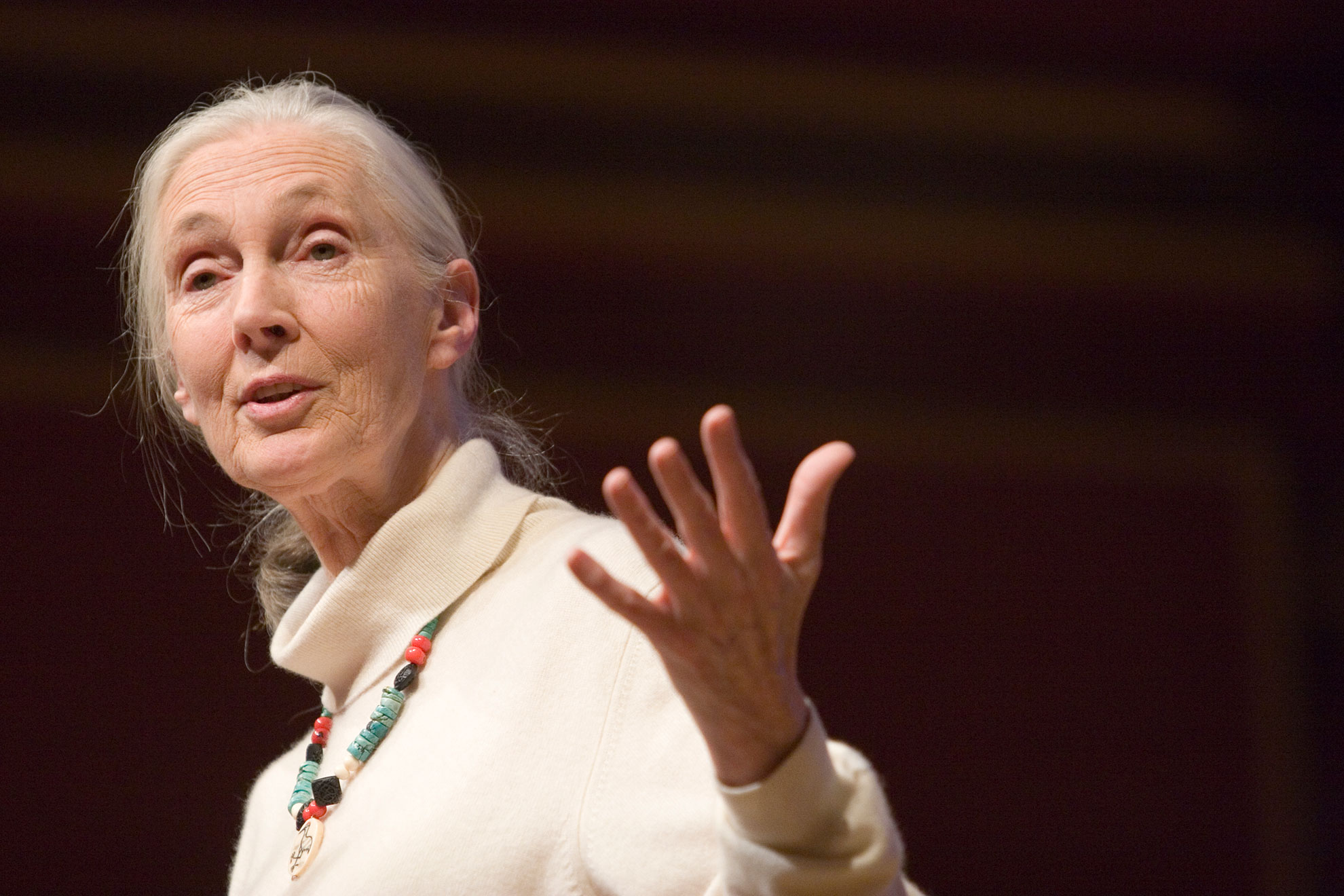
"Richard Wrangham, Harvard's Ruth Moore Professor of Biological Anthropology, emeritus, and a leading researcher of chimp behavior, worked alongside Goodall first as a student and later as a colleague after he founded the Kibale Forest Chimpanzee Project in Uganda. In this edited conversation, he discusses her wider impact as a teacher - not just of colleagues and fellow scientists, but as an exemplar of hope and empathy."
"Jane had arrived in 1960 and did a wonderful job of tracking the chimps, finding them and observing them in the wild, before she got to know them as individuals by staying with them in a small camp area. Starting in '69, students started following the chimps wherever they went. I arrived in 1970 and joined that group. We discovered, for example, that the chimps had a territory that they defended against their neighbors, which raised all sorts of fascinating questions."
Jane Goodall transformed scientific understanding of chimpanzees by demonstrating individual recognition, social complexity, and behaviors relevant to human evolution. Long-term field observation at Gombe introduced habituation and follow-the-individual methods that enabled documentation of territoriality and social dynamics. Students began systematic following in 1969, and later researchers confirmed that chimp communities defend territories against neighbors. Goodall also worked in the Serengeti studying carnivores while maintaining intense curiosity about chimp behavior. Her career combined rigorous field science, conservation advocacy, and personal empathy, inspiring colleagues, students, and the global public toward greater appreciation and protection of great apes.
Read at Harvard Gazette
Unable to calculate read time
Collection
[
|
...
]